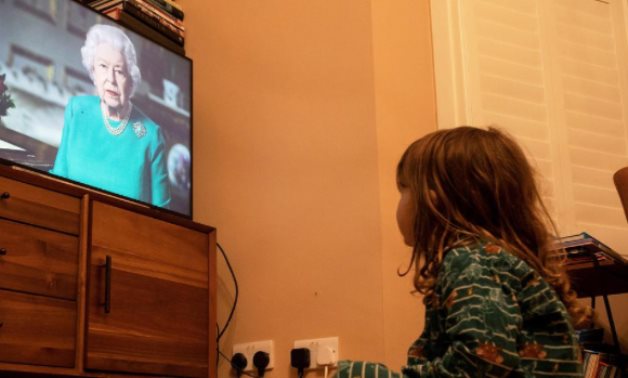
FILE PHOTO: Isaac (4) watches Queen Elizabeth II during a televised address to the nation, London, Britain, April 5, 2020. REUTERS/Simon Dawson/File Photo
LONDON (Reuters) - Britons spent 40% of their waking day watching TV and online video at the height of the COVID-19 lockdown in April, including spending twice as long watching streaming services like Netflix, Disney+ and Amazon Prime Video, regulator Ofcom said.
Adults, who were advised by the government in late March to stay at home, spent on average six hours and 25 minutes a day watching news and entertainment, Ofcom said, a rise of almost a third on the same month a year ago.
Prime Minister Boris Johnson’s announcement on May 10 that lockdown measures would be eased was the most watched programme of the year so far, with 18.7 million viewers, while the imposition of lockdown on March 23 was second with 14.6 million.
Queen Elizabeth’s broadcast to the nation was third with 14 million.
When they were not watching news and information about the pandemic, Britons increasingly turned to video streaming services for entertainment.
An estimated 12 million adults signed up to a new streaming service in the first weeks of lockdown, of whom 3 million had never subscribed to one before, Ofcom said.
Disney+, which was launched by the U.S. entertainment group in Britain on the first day of lockdown, made an immediate impact, attracting 16% of online adults by early July to become the third-ranked service behind Netflix, which had 45%, and Amazon Prime Video, with 39%.
Traditional broadcasters, led by the publicly funded BBC and its commercial rival ITV, briefly achieved their highest combined share of broadcast TV viewing in more than six years in March.
But the boost proved short lived and their share dropped back by June as the pandemic interrupted the production of soap operas, major sporting events and entertainment shows, Ofcom said.
Comments
Leave a Comment